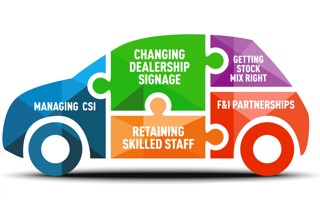Author: Alan Cooper, sales director, retail Services, Codeweavers
There needs to be a sweeping change in the role of technology both at the point of sale and online, placing consumers in control of their finance experience and just as importantly to provide lenders with a rigorous record of the customer’s finance buying experience.
We need to make it more customer-friendly and accountable.
This should be seen as an inevitable conclusion of a broader review of the recent FCA’s Motor Finance Final Findings report.
Looking beyond the potential changes to the commission model, which have largely dominated the headlines to date, the regulator made other observations, which seem set to create greater change than commission/rate setting alone.
Arguably, most telling is a role for a significant level of broker/dealer oversight by lenders.
Greater lender oversight of brokers including car dealers represents a potential development of the lender responsibility under the current Limited Permission approach used by most dealers.
The Limited Permission regime emerged when the current regulatory model was established, then under the FSA.
When dealer finance first came under the FSA’s remit, the regulator might have expected lenders to act as Principles to dealers as Appointed Representatives, as happened in other markets; this did not transpire.
Lenders were reluctant to take on responsibility for dealers’ financing approach; as a result, the Limited Permission regime, which dominates the sector evolved, freeing lenders of responsibility, or so it seemed.
The FCA report carried a very telling line that suggests this could well change, noting: “We were particularly concerned that some lenders appear to take the view that it is sufficient to check that a broker is FCA-authorised, as it can be assumed that they will be compliant with FCA rules (as the FCA will monitor compliance).”
The FCA’s comments on lender’s responsibility for its brokers appears to be a step up from the broader understanding of the relationship between lender and broker (dealer).
It seems likely to see a shift in the accountability of lenders more akin to that seen for Appointed Representatives, rather than the Limited Permission status typically held by the dealer community.
If this is the case, there can be no question that lenders will want to reassure their oversight responsibilities with technology that can provide the consistency that will be required, rather than take the inevitable risks associated with a manual process.
Looking ahead, this combination of; oversight and transparency will surely accelerate the use of entirely self-serve financing processes in the showroom and online without any dealer involvement to ensure measurable control and transparency.
Only through technology can lenders hope to gain the process consistency, measurability and audit trail of the financing process.
On its own, a rigorous, process-driven finance journey could fall well short of creating a great customer experience, even if it is compliant.
For this reason, I can see the process providing a ‘gamification’ experience for customers to ensure they view all the necessary information, progressing through the necessary ‘platforms’ only when they have done so.
It may seem to be a major step from the traditional Business Manager’s office experience, but given the success of bank apps and their use by 70% of the banking population, the future customer-driven use of technology in finance is clearly signposted.


















Login to comment
Comments
No comments have been made yet.